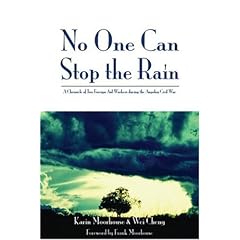 The Confederation of African Football says it is satisfied with Angolan Government assurances on security after the Togo team bus attack on Friday in the northern province of Cabinda. The attack which killed three people including the team’s assistant coach and wounded two players has left the football world in shock and thrown light on one of the world’s more obscure long-running separatist conflicts.
The Confederation of African Football says it is satisfied with Angolan Government assurances on security after the Togo team bus attack on Friday in the northern province of Cabinda. The attack which killed three people including the team’s assistant coach and wounded two players has left the football world in shock and thrown light on one of the world’s more obscure long-running separatist conflicts. Cabinda is officially part of Angola but the Atlantic enclave is geographically separated from the rest of the country by the Democratic Republic of Congo to the south. Europeans have been in Cabinda since the 16th century trading for palm oil and timber. Portugal, Holland and England all established trading posts along the coast leading to squabbles between them over sovereignty. The matter was resolved in 1885 with the Treaty of Simulambuco which awarded the colony to Portugal.
At the time Angola was directly to the south, and also part of the Portuguese Empire. But when the genocidal Belgian king Leopold II wanted a path to the Atlantic Ocean for his sprawling Congo Free State, Portugal granted him the land south of Cabinda to the mouth of the Congo. Cabinda continued as a Portuguese colony until the 1970s. In the 1960s an independence movement called the Front for the Liberation of the Enclave of Cabinda (FLEC) was formed to fight against colonial rule.
When the Portuguese junta collapsed in the Carnation Revolution of 1975 so did its rule of the colonies. In January 1975 Portugal signed the Alvor Agreement with Angola granting it independence. Cabinda was included in the agreement though FLEC was excluded from the negotiations. Similar to East Timor, FLEC proclaimed Cabindan independence from Portugal in late 1975. But just as in Timor, a big neighbouring power launched an invasion. Angolan forces quickly took over the towns and the poorly armed FLEC fled to the mountains.
But unlike Fretelin in Timor, FLEC was unable to keep a cohesive centre. It split in several splinter groups, some of which sided with the South African-backed UNITA rebels in Angola. There are now about a dozen separatist groups demanding independence for Cabinda. But with 80 percent of Angola’s oil off the Cabinda coastline there was little chance Luanda would willingly cede to enclave demands. And when Angola was awarded the rights to host the 2010 African Cup of Nations Cabinda’s Estadio Chimandela was selected as one of the four grounds to hold the games.
Togo were due to play Ghana in the first game in Cabinda tomorrow night. The team were travelling by bus with a security escort from mainland Angola through the DRC and into Cabinda. The team bus had just crossed the border into Cabinda when it came under heavy gunfire. The driver was killed immediately leaving the bus stranded and officials and players cowered under their seats. The attack lasted half an hour and two others died, the team’s assistant coach Hamelet Abulo and a Togolese journalist.
Initially Togo’s captain and star player Emmanuel Adebayor said it was likely Togo would withdraw from the tournament. "I think a lot of players want to leave,” he told the BBC. “I don't think they want to be at this tournament any more because they have seen their death already.” But in the last 24 hours, the players have announced a change of heart and say they will play. The game will go ahead in Cabinda. Initially it also seemed likely that the ground would be pulled as a venue. But the Confederation of African Football (CAF) announced today games would be held in the enclave’s 20,000 seater stadium.
Angola’s leaders have been in severe damage control after this high profile attack. According to a statement released in the name of the Prime Minister Paulo Kassoma, Angola “considers the incident in Cabinda as an isolated act and repeated that the security of Togo’s team and the other squads is guaranteed.” But they may not be able to live up to their words. One of the independence factions claimed responsibility for the attack with an ominous warning signed by FLEC's secretary general Rodrigues Mingas. “This operation is just the start of a series of planned actions that will continue to take place in the whole territory of Cabinda.”






